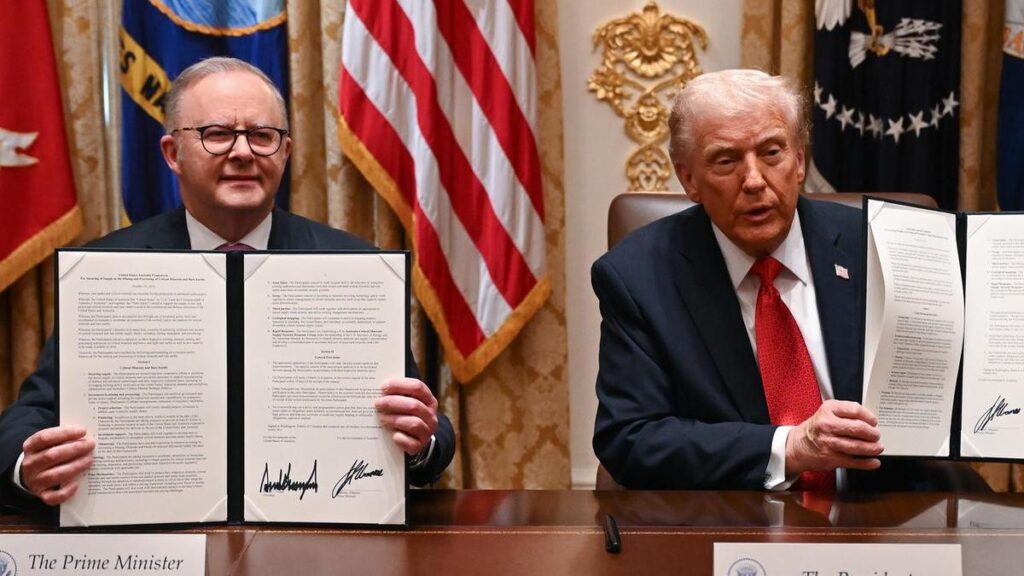
Australia is positioning itself as a key player in the global market for critical minerals, with Prime Minister Anthony Albanese announcing plans to strengthen trade relationships beyond the United States. Speaking at the Asia-Pacific Economic Cooperation summit held in South Korea, Albanese highlighted Australia’s vast reserves of critical minerals and rare earths, emphasizing their potential for driving economic growth and job creation.
The prime minister’s remarks come just after signing a landmark $8.5 billion deal with former US President Donald Trump the previous week. This agreement serves as a framework for future partnerships, with Albanese stating, “What we did with the United States was a framework. Australia has these products, critical minerals, and rare earths that are in demand around the world.” He underscored the opportunity this presents not only for Australian businesses but also for the broader economy.
As Australia seeks to leverage its natural resources, Albanese aims to engage with countries across the Asia-Pacific region. His strategy involves expanding partnerships to include nations that are also in need of critical minerals, thereby boosting Australia’s export potential. The prime minister noted, “We see this as not just an opportunity between Australia and the United States; this is an opportunity for Australian jobs and Australian economic growth.”
During the summit, Albanese also had an informal meeting with Chinese President Xi Jinping. While the prime minister confirmed the meeting, he refrained from disclosing whether issues related to defence tensions and the South China Sea were discussed. When asked about diplomatic incidents raised with Chinese Premier Li Qiang earlier in the week, Albanese maintained the confidentiality of diplomatic discussions, stating, “I don’t go out of private discussions and come in here and discuss them, because that way you won’t have diplomatic advancement.”
The prime minister’s engagement with China reflects the complex nature of Australia’s foreign relations, particularly as it aims to balance its interests with both Western allies and regional powers. This diplomatic effort is crucial given the strategic importance of critical minerals in modern technology and defence.
In addition to trade discussions, Albanese faced questions regarding the recent decision by King Charles of the United Kingdom to strip Prince Andrew of his royal titles. The prime minister chose not to comment on this royal controversy, asserting that “His Majesty King Charles can make decisions without the benefit of my advice.”
Overall, Albanese’s focus at the APEC summit illustrates Australia’s commitment to capitalizing on its mineral wealth as it navigates the intricate landscape of international relations. The prime minister’s proactive approach aims to secure a stable economic future for Australia, benefiting both domestic industries and international partnerships.






